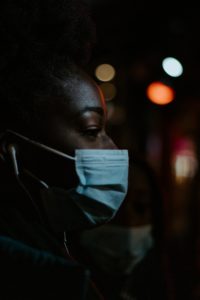Quarter of Covid-19 patients still symptomatic after six months
More than a quarter of people infected with Covid-19 reported not having fully recovered after six to eight months.
Those findings are described this week in the open-access journal PLOS ONE by Milo Puhan and colleagues at the University of Zurich, Switzerland.
While initial responses Covid-19 focused on reducing the acute burden on public health, a growing body of evidence indicates that the infection can also result in longer-term physical and mental health consequences.
These long-term consequences, currently referred to as ‘post-Covid-19 syndrome’ or ‘Long Covid’ are of increasing concern for healthcare systems.
For the study, conducted by Milo Puhan and colleagues at the University of Zurich, Switzerland, researchers recruited 431 participants from within the contact tracing system in Zurich.
All participants had tested positive for Covid-19 between February and August 2020, and completed an online questionnaire about their health a median of 7.2 months after their diagnosis.
Symptoms had been present at diagnosis in 89% of the participants and 19% were initially hospitalized. Compared to individuals not participating in the study, participants were younger–with an average age of 47.
Overall, 26% of participants reported that they had not fully recovered at six to eight months after the initial Covid-19 diagnosis. Fifty five per cent reported symptoms of fatigue, 25% had some degree of shortness of breath, and 26% had symptoms of depression.

A higher percentage of females and initially hospitalized patients reported not having recovered compared to males and non-hospitalized individuals. A total of 40% of participants reported at least one general practitioner visit related to Covid-19 after their acute illness.
The authors say that their findings underscore the need for the timely planning of resources and patient services for post-Covid-19 care.
The authors add: ‘This cohort study based on a representative, population-based sample of Covid-19 infected individuals found that 26% did not fully recover within six-eight months after diagnosis and 40% had at least one further healthcare contact related to Covid-19.
These findings underline the need for the timely planning of healthcare resources and services tailored to the needs of individuals suffering from post-Covid-19 syndrome.’
A spokesperson for the Long Covid SOS campaign said the findings show how crucial it is to spread awareness of the condition in hard to reach communities.
‘There have been several studies which conclude that the proportion of people still suffering symptoms after 12 weeks is higher than the percentage suggested by the ONS, and especially given the sample size we need to take these data seriously.
‘It is particularly worrying that a significant proportion reports severe symptoms.
‘It does not surprise us to learn that deprivation influences the incidence of long Covid, as is the case with many illnesses and this demonstrates how crucial it is to spread awareness of this condition in hard to reach communities.
‘These important findings add to mounting evidence that the challenges posed by Long Covid cannot be ignored, and are likely to impact society for many years to come.’
Photo Credit – Alex Motoc















